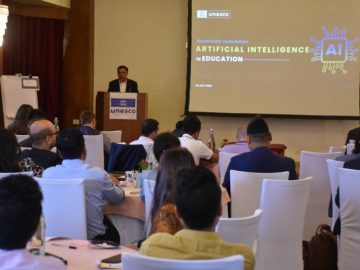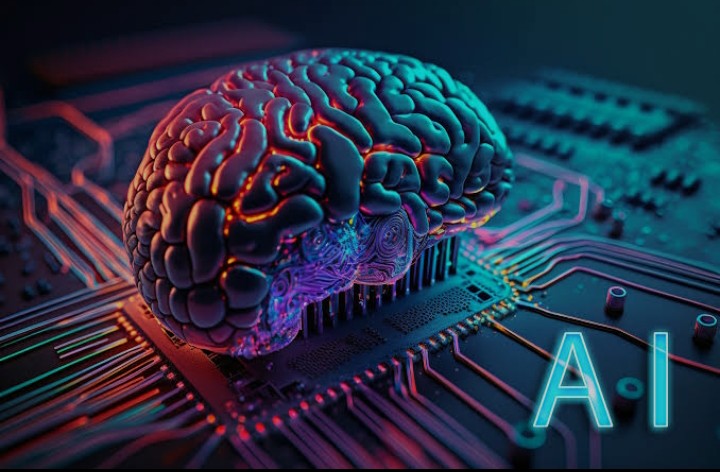The banking industry is the sector most likely to see the largest upheaval of roles once artificial intelligence becomes more fully utilised, a study has found.
According to Citigroup (using Accenture figures), about 54% of jobs across banking have a high potential to be automated, the bank said in a new report on AI. The next most-affected sector is insurance, with 48%.
The bank also warned that AI introduced new levels of risk to the finance sector given its tendency to “hallucinate” and could lead to large-scale financial damage and loss of reputation.
An additional 12% of roles across the industry could be “augmented” with the technology, Citigroup found. And global banking industry profits could be driven to $2 trillion by 2028, a 9% increase over the next five years, it projected.
The report stated: “From the likely use of autonomous agents seamlessly executing client decisions in the background, to productivity gains released by unlocking better data insights, banking bots are set to revolutionise all aspects of banking.”
The world’s largest banks have begun experimenting more with AI over the last year, looking to boost employee productivity while cutting costs.
Shrink the work week
JPMorgan Chase & Co chief executive officer Jamie Dimon has said he believes the technology will allow employers to shrink the work week to just 3.5 days, according to Bloomberg. And Deutsche Bank AG is using artificial intelligence to scan wealthy-client portfolios while ING Groep NV uses generative AI to screen for potential defaulters.
Citigroup has said it would equip its 40,000 coders with the ability to experiment with different AI technologies, and the company has used generative AI to comb through hundreds of pages of regulatory proposals far more rapidly than any human could.
Overall, however, noted the report, banks’ spending on AI has been modest compared with their overall spending on tech. This was because a substantial portion of banks’ tech spend is on maintenance costs to support legacy systems, and “business as usual” operations.
The AI spending at present is disproportionately going on consultants and external vendors, with work still skewed toward pilot schemes rather than full production. But change is afoot with Accenture and Tata Consulting both reporting accelerated spending on generative AI by the sector.
‘Amplify the power’
Generative AI “has the potential to revolutionise the banking industry and improve profitability,” David Griffiths, Citigroup’s chief technology officer, said. “At Citi, we’re focused on implementing AI in a safe and responsible way to amplify the power of Citi and our people.”
Ronit Ghose, head of future of finance at Citi Global Insights, added: “AI will transform finance by empowering clients, creating new jobs and increasing competition. AI will make money and clients smarter. In the future, every client will have an AI powered assistant in their pocket, making their financial lives better.”
Headcount may not fall overall, Citigroup’s report found, despite the loss of certain human roles, because financial firms will likely need to hire AI managers and AI-focused compliance officers to help them ensure their use of the technology is in line with regulations.
Citigroup said there were many examples of new technology not leading to a loss of human jobs; for example, the number of human tellers multiplied even after the introduction of automated teller machines in the 1970s.
Data security and reputational concerns
Despite the upbeat assessment of AI in finance, the report warned that a shift to a bot-powered world “raises questions around data security, regulation, compliance, ethics and competition”. It acknowledged that since AI models were “known to hallucinate and create information that does not exist, organisations run the risk of AI chatbots going fully autonomous and negatively affecting the business financially or its reputation”.
The report noted that all technology goes through cycles: hype, disillusionment, then mass adoption. The authors wrote: “AI expectations have been high since mid-2023. As financial firms grapple with the transition, the gap between hype and mass production currently remains wide.”
Sign up to our weekly round-up of HR news and guidance
Receive the Personnel Today Direct e-newsletter every Wednesday
The bank said it was still early days for the new technology: “For now, GenAI in finance is largely at a proof-of-concept stage. But we’re in a period of rapid and unprecedented transition,” the authors said.
Latest HR job opportunities on Personnel Today
Browse more human resources jobs




